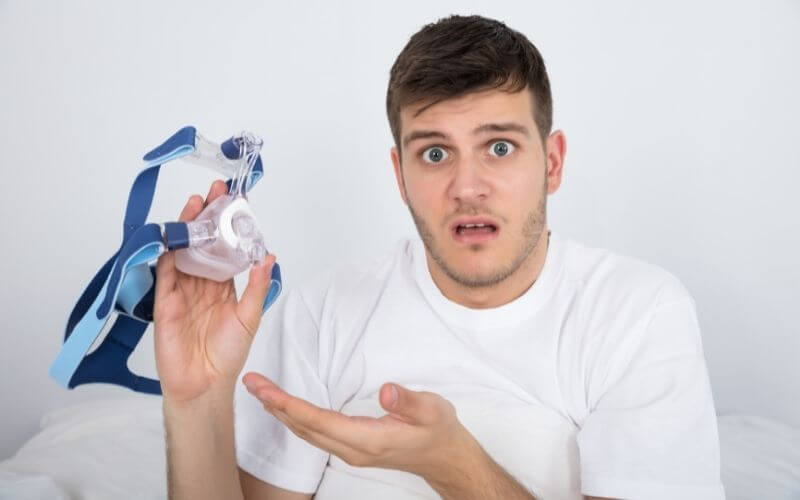According to the National Sleep Foundation, sleep apnea is a disorder that affects over 18 million adults in the U.S. Sleep apnea is a sleep breathing disorder in which a person stops breathing while they sleep. In the most common form, obstructive sleep apnea, the throat muscles relax, letting the tissue in the back of the throat droop down and obstruct the airway. Untreated, obstructive sleep apnea is associated with many life-threatening diseases. Luckily, there are numerous treatment options to help treat sleep apnea. While CPAP (continuous positive airway pressure) therapy is the most popular treatment option, it isn’t for everyone. We’ve listed a couple of alternative sleep apnea treatments that could be more comfortable for you or your partner.
- Oral Appliance Therapy: Oral appliance therapy is using a custom-fitted oral appliance, similar to a retainer or mouthguard while sleeping to help keep the airway open during sleep. Oral appliances are designed to pull your tongue forward or keep your lower jaw in a forward position while you sleep. There are over one hundred different types of dental devices for snoring and sleep apnea that are available to specially trained dentists to treat sleep-disordered breathing including snoring and obstructive sleep apnea. Determining the proper therapy can only be made by the joint consultation of your sleep physician and a qualified sleep medicine dentist.
- Surgery: While not the first go-to treatment option for treating snoring or sleep apnea, surgery may be an effective option for patients who cannot tolerate CPAP or oral appliance therapy. OSA is often caused by abnormalities in the mouth, throat or sinuses, and a variety of oral surgical procedures can help ease sleep apnea concerns for patients. The most common procedures are uvulopalatopharyngoplasty (UPPP) and expansion sphincter pharyngoplasty, which can address the structural abnormalities in the breathing passages that are causing or worsening your sleep apnea. Surgery is typically more effective in the treatment of snoring than for sleep apnea.
- Healthier Lifestyle: Living a healthier lifestyle can make obstructive sleep apnea less severe. Excessive weight or obesity may be a major contributor to a person’s OSA. Weight gain can cause fat tissue to build up around the throat and at the base of the tongue. Regular exercise can increase your energy level, strengthen your heart, and improve sleep apnea symptoms. In addition, quitting smoking, which can irritate the airway, and avoiding alcohol before going to sleep can reduce sleep apnea complications.
Treating a patient’s obstructive sleep apnea can have a significant impact on their overall health and quality of life. If CPAP therapy isn’t the right treatment, there are other suitable alternatives. Choosing an alternative to CPAP should be done in conjunction with your physician.
Contact us
Sleep apnea can be a very dangerous sleep disorder. Every person has unique issues and it is important that the treatment that you and your physician choose is best suited to you and your needs. A trained dentist can help find the right treatment options for you. Contact us and get the help you need today!

